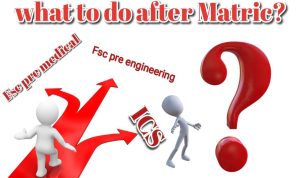If you’re considering enrolling in the Faculty of Science (FSc) program, you might be wondering about the role of mathematics in this course of study. The answer depends largely on the specific track you choose within the FSc program. Let’s break down the details to give you a clear understanding.
FSc Pre-Medical: Limited Math:
In the FSc Pre-Medical track, the focus is primarily on biology, chemistry, and physics. Math is not a major component, but it isn’t entirely absent. Here’s what to expect:
- Basic Mathematics: While you won’t have dedicated math classes, you will encounter math in your physics and chemistry courses. This includes topics like algebra, basic calculus, and statistics, which are essential for solving scientific problems and understanding experimental data.
- Mathematical Skills: Having a solid grasp of basic math is helpful for tasks like calculating concentrations, understanding rates of reactions, and analyzing experimental results.
Summary: In the Pre-Medical track, math is present but not as a standalone subject. It’s integrated into other science courses to support your understanding of those fields.
FSc Pre-Engineering: Extensive Math:
For those who choose the FSc Pre-Engineering track, mathematics is a core part of the curriculum. Here’s what you can expect:
- Dedicated Math Courses: You will have specific courses focused on mathematics. These typically cover a range of topics including algebra, trigonometry, calculus, and geometry.
- Application in Other Subjects: Math is not only a standalone subject but is also heavily integrated into physics and chemistry. You’ll need strong mathematical skills to excel in these areas, particularly in topics like mechanics, electromagnetism, and thermodynamics.
- Foundation for Engineering: The math you learn in the Pre-Engineering track is crucial for your future studies in engineering. It provides the foundation needed for advanced topics in engineering disciplines.
Summary: In the Pre-Engineering track, math is a major component and is essential for success. You will have dedicated math classes and will use math extensively in other science courses.
Tips for Success in FSc Math:
Regardless of the track you choose, here are some tips to help you succeed in the math components of the FSc program:
- Regular Practice: Math requires regular practice. Work on problems daily to strengthen your understanding and skills.
- Understand Concepts: Don’t just memorize formulas; strive to understand the underlying concepts. This will make it easier to apply your knowledge to different problems.
- Use Resources: Utilize textbooks, online tutorials, and study groups to help you grasp difficult topics.
- Seek Help: If you’re struggling with a particular concept, don’t hesitate to ask for help from teachers or peers. Getting clarification early can prevent confusion later on.
- Relate to Real Life: Try to see how math applies to real-life situations, especially in science and engineering. This can make learning more interesting and relevant.
Conclusion:
Yes, there is math in the FSc program, but the extent of it depends on whether you choose the Pre-Medical or Pre-Engineering track. In the Pre-Medical track, math is limited and integrated into other science subjects, while in the Pre-Engineering track, math is a significant and essential part of the curriculum. Understanding the role of math in your chosen path can help you prepare and succeed in your studies. So, whether you’re solving complex equations or just brushing up on basic calculations, embrace the math you encounter—it’s an important tool in your scientific journey.



